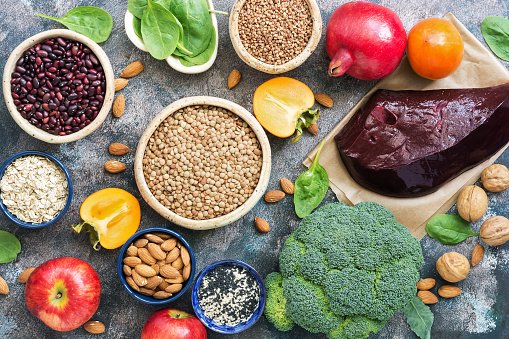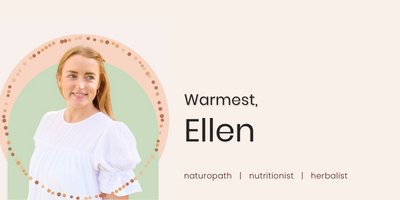It is becoming more popular for women to want to test their AMH (anti-mullerian hormone) levels to predict their fertility. Most GP’s first point of call with any fertility issues is to test AMH and some IVF clinics are also likely to measure your AMH before you begin treatment.
However, AMH levels are not the be all and end all when it comes to fertility - in fact it doesn’t have any direct links to fertility or pregnancy outcomes at all. Let me first explain to you what AMH is and how it works in the body.
AMH is not a score & it does not tell us how many eggs you have left
Clearing up AMH myths:
AMH does not tell us the quality of your eggs
AMH does not tell us what your chances of conceiving are
AMH does not tell us how long until you go into menopaus
AMH does not tell us how fertile you are
Anti-mullerian hormone is produced by the granulosa cells in the ovarian follicles. Ovarian follicles are where our eggs reside and become mature before ovulation. These follicles become bigger as the eggs mature and the AMH levels continue to rise as the follicles grow. The follicles stop producing AMH once the follicles reach a certain size. The AMH test is basically measuring the number of follicles that are growing. Women are born with millions of follicles, and they slowly decline as we age. Having a low AMH means there is a reduced amount of follicles growing, and therefore, a reduced amount of mature eggs available for conception - but again this does NOT mean a reduced chance of falling pregnant. Women with PCOS have a lot more follicles compared to those without PCOS. This means women with PCOS can have a very high AMH reading which can be deceptive - keep reading to learn why.
You need one quality egg for conception. Although AMH levels measure the ovarian reserve, it does not measure the quality of the eggs, nor the chances of pregnancy. AMH levels do not give a complete picture of your fertility. It is more important to have amazing quality eggs for increased conception and healthy pregnancy outcomes rather than a high egg reserve.
Why you shouldn’t rely on AMH levels for your fertility:
If you are on your fertility journey and are relying in your AMH levels to be the guide to tell you if you are “fertile” or not - this is not a good idea for the following reasons:
If you have high levels of AMH this can give you false hope because it could be possible that the qualty of your eggs is not amazing and therefore may be hard to fall pregnant.
If you have high levels of AMH and therefore don’t bother looking into your partners sperm health - this can also be a problem as we may not be seeing the full picture of your fertility as a couple.
If you have low levels of AMH you may be causing yourself unnecessary stress because the low levels don’t actually link to fertility problems or birth outcomes.
Currently, there is no standardisation of AMH measurements and different laboratory tests have different cut off measurements. This means that some labs may say that you have normal levels, where other labs could say that your levels are low. This is just another reason why it is not a reliable tool for predicting fertility.
What affects AMH:
There are many environmental factors that can impact AMH levels. Studies have shown that the use of hormonal contraception (>1year) can reduce AMH levels by 50%! This is a lot and very relevant to take into account if you have just come off hormonal contraception to get pregnant and have just got your AMH tested. Your levels can also be impacted by factors such as the time of year that you get tested. Research has shown Vitamin D levels to influence AMH levels. Women who measured their AMH levels in winter were 18% lower compared to those who measured their levels in summer with higher Vitamin D. These are all factors that need to be considered when interpreting results.
What we can do to help our fertility:
As we age our eggs are exposed to a range of environmental toxins which affects the health of our eggs, which makes sense as to why we are generally more fertile in our younger years. Women who smoke or have a higher body mass index have been indicated to have lower AMH levels and egg quality. Additionally, exposure to benzene and formaldehyde, which are commonly found in everyday products, such as, cosmetics and personal products have been associated with lower AMH levels and egg quality. Genetics, illnesses and stress can also influence our egg quality. However, this does not mean we can’t improve our egg health! Reducing our exposure to environmental toxins, improving our diets and managing our stress levels are all ways to optimise our overall health, but especially our precious eggs.
Our egg reserve is precious and vulnerable. This is just one of the many reasons why it is important to always look after our health, especially if you are wanting a baby in the future. Rather than focusing on your AMH levels, which don’t really give us a clear indication of your fertility AT ALL, let’s put our efforts into having quality eggs! It doesn’t matter if you are not planning on falling pregnant until 10 years down the track. We should be aiming to protect our eggs now.
If you have been told your AMH levels are low, please don’t freak out. Remember, quality over quantity!
Focus on these top most important factors for your fertility journey:
Tracking your cycle with Tempdrop fertility tracker - use this link for 15% off
Monitoring your cervical mucus can provide further insights to your fertility and ovulation
Investigate your hormonal balance - we need progesterone to help with conception and implantation - reach out to me if you need assistance with hormone testing - available worldwide.
Assess sperm health & quality - reach out to me for help to access these tests
Join my Natural Fertility course which covers all of the above + so much more in a supportive course
Listen to my podcast on Spotify or Apple Podcasts for more fertility support!
References:
Marcelle I Cedars, Evaluation of Female Fertility—AMH and Ovarian Reserve Testing, The Journal of Clinical Endocrinology & Metabolism, Volume 107, Issue 6, June 2022, Pages 1510–1519, https://doi.org/10.1210/clinem/dgac039
Moolhuijsen, L. M. E., & Visser, J. A. (2020). Anti-Müllerian Hormone and Ovarian Reserve: Update on Assessing Ovarian Function. The Journal of clinical endocrinology and metabolism, 105(11), 3361–3373. https://doi.org/10.1210/clinem/dgaa513
Moolhuijsen, L. M. E., & Visser, J. A. (2020). Anti-Müllerian Hormone and Ovarian Reserve: Update on Assessing Ovarian Function. The Journal of clinical endocrinology and metabolism, 105(11), 3361–3373. https://doi.org/10.1210/clinem/dgaa513
https://www.europeanreview.org/wp/wp-content/uploads/5255-5260-1.pdf
Plante, B. J., Cooper, G. S., Baird, D. D., & Steiner, A. Z. (2010). The impact of smoking on antimüllerian hormone levels in women aged 38 to 50 years. Menopause (New York, N.Y.), 17(3), 571–576. https://doi.org/10.1097/gme.0b013e3181c7deba
Li, H., Hart, J. E., Mahalingaiah, S., Nethery, R. C., James, P., Bertone-Johnson, E., Eliassen, A. H., & Laden, F. (2023). Environmental Exposures and Anti-Müllerian Hormone: A Mixture Analysis in the Nurses' Health Study II. Epidemiology (Cambridge, Mass.), 34(1), 150–161. https://doi.org/10.1097/EDE.0000000000001547












































